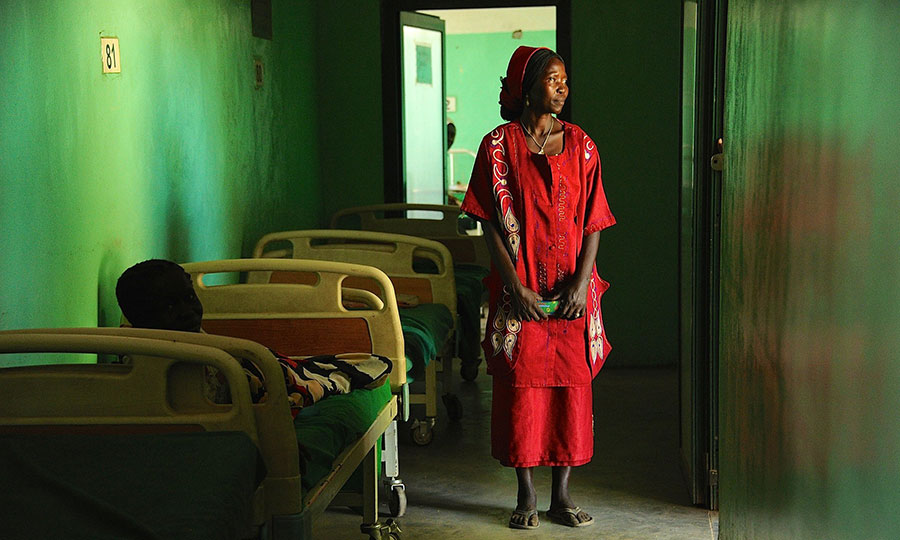Reflections from Service at One of Sudan’s Only Active Surgical Centers

Tucked away in Sudan’s Nuba Mountains sits the Mother of Mercy Hospital, the only referral facility for a population of over one million people. Dr. Tom Catena, CMMB’s longest-serving volunteer, has led the delivery of care here since 2008. CMMB continues to support Dr. Tom’s work and engages other medical professionals with a heart for service to follow in his footsteps. Parker Savage, a MD candidate at UNC School of Medicine, is one of these individuals.
Supported by CMMB and MAP International, Parker served alongside Dr. Tom at the Mother of Mercy Hospital. While in the Nuba Mountains, he supported patient care and gained career experience. Below, we share a series of brief reflections through which Parker details his experience and how it has helped define what comes next for him.
On conflict and care in the Nuba Mountains
This population is rising as refugees are fleeing to the mountains amid increasing political violence and genocide in the areas surrounding Khartoum and Darfur. Additionally, many of the hospitals in Khartoum have closed due to the war, making Mother of Mercy one of the only active surgical centers in the country.
With this political background in mind, Mother of Mercy encounters a wide range of health issues. As the primary provider of maternal healthcare and the only center for cesarean sections in the entire region, Mother of Mercy is attempting to address the extreme rates of maternal and infant mortality in the Nuba Mountains. From treating basic tropical conditions like malaria, tuberculosis, and bacterial meningitis to surgically managing various conditions, the hospital provides primary medical and surgical care to an ever-increasing number of patients.
Beyond primary care, we also cared for many who incurred traumatic injuries during the ongoing conflict and performed specialized surgical operations on pediatric patients. In summary, the “main health issue” at Mother of Mercy is every medical problem under the sun, complicated by chronic war, poor infrastructure, and limited healthcare, resulting in late presentations and progressive disease.
On partnership and persistence
It was rewarding to see that there are those like Dr. Tom and his staff who are refusing to succumb to cynicism and are deeply committed to serving the least of these. Their persistence in the face of increasing uncertainty about the future, a dwindling supply chain, and, frankly minimal recognition was inspiring to me. The deep commitment to recognizing the Nuba people as God’s children and finding the will to go on serving them through this vision was deeply moving. It was rewarding to be a partner in that work for a time and to imagine how I might contribute to the efforts they, and others like them, are making in the world of global health moving forward.
On the challenges
I watched a number of my patients suffer and die from curable maladies simply because they were born in the Nuba Mountains. The fact that diarrhea, malaria, and tuberculosis, to name a few, are sources of significant morbidity and mortality in Sudan was an injustice I had to confront daily. Beyond these tropical illnesses, the generational impact of this ongoing civil war was obvious and deeply troubling.
As a Christian, this suffering, due to factors like geography and politics, seemed like an affront against a good God. Throughout my stay, I tried to engage this discomfort, making an effort to avoid becoming calloused to the suffering while not allowing my own sadness to derail my presence to the next patient. Finding this balance between what I believe to be a healthy empathy with the sufferer and functioning as a clinical professional was a tension that was difficult to navigate.
On faith and the mission experience
Reading Paul Farmer’s reflections on liberation theology and its concept of a “preferential option for the poor” shaped a lot of my theological imagination while on this trip. Farmer explains that disease preferentially chooses the poor, and thus, as Christians committed to the way of Jesus, we ought to preferentially treat the poor with our medical resources. This deeply resonated with what I experienced in Sudan.
Alongside this reflection was an ongoing discussion with Dr. Tom about the various roles Christians are called to play in this service. Obviously, not all are called to start mission hospitals in the most remote locations on earth (though some are). However, if all are called to participate in this mission in some fashion, what does that look like? For those of us in the medical field, how can we leverage our skills for the poor in whichever context we practice, and how might we choose to practice in a context that makes this option realistic? For those organizing health care delivery, how might we employ the talents and resources of those outside the immediate medical disciplines to better reach the sick? These are questions of faith that I am thinking about as I leave Mother of Mercy and look ahead to my next stage of training in the U.S.